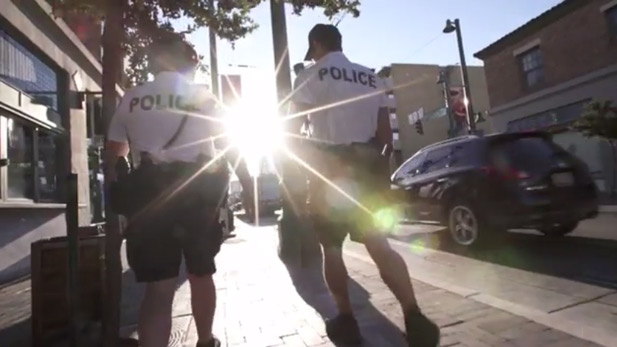 Tucson police officers respond to a situation.
Tucson police officers respond to a situation.The increased use of body cams by police has drawn serious concerns from a national coalition on civil rights made up of more than 200 organizations. The Tucson Police Department was one of 75 police departments evaluated.
The report, called "Police Body Worn Cameras: A Policy Scorecard," was produced by the Leadership Conference on Civil and Human Rights and Upturn, a coalition made up of more than 200 organizations.
The scorecard uses eight criteria derived from the Civil Rights Principles on Body-Worn Cameras signed by a broad coalition of civil rights, privacy and media rights groups in May 2015.
The Tucson Police Department scored mostly positive on the eight criteria the civil rights coalition used to evaluate the use of body cams. But on the most critical — the policy that allows police to review their footage before writing a report — TPD was scored as failing.
Sakira Cook of The Leadership Conference on Civil and Human Rights, explains why evaluators found the policy of reviewing footage prior to writing a report as ripe for abuse.
“Camera footage can be misleading. If an officer views the footage before filing his or her report, an opportunity will arise for the officer to conform the report to what the video appears to show, rather than on what he or she remembers.”
Lt. Tim Gildner is in charge of managing the body cameras in the Tucson Police Department. He questions the qualifications of those producing the scorecard.
“As far as them being qualified, I would say absolutely not. Nobody on this list of agencies — unless they have some background on body-worn cameras — nobody on this list is qualified as a subject-matter expert.”
Gildner says peer-reviewed reports from those who know how body cameras work and have used them in real-life situations are better able to recommend how the cameras should be used in the future. He says TPD's main concern in using body cameras is public safety and police transparency.
TPD was able to purchase 300 more body cameras with funding from Proposition 101. The goal is to have body cams for all of TPD’s almost 900 officers by the first of the year, officials said.
Read the full report here.

By submitting your comments, you hereby give AZPM the right to post your comments and potentially use them in any other form of media operated by this institution.